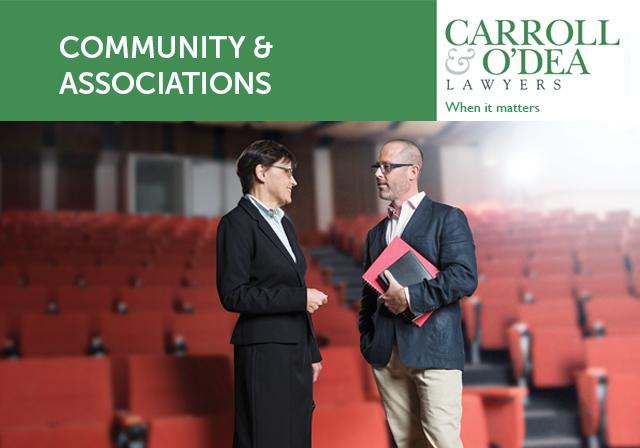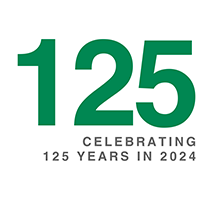
Community & Associations Newsletter – October 2016
Published on October 18, 2016 by Josephine Heesh and Lucinda Gunning
Welcome to our October 2016 Newsletter. In this edition we deal with:
- The new Associations Incorporation Act NSW provisions
- Possible changes to the Victorian Equal Opportunity regime
- The same sex marriage plebiscite issue
- Our work with the Mosaic Program
We hope you find the articles interesting: we always enjoy compiling them.
The Carroll & O’Dea Community & Associations Team
Amendments to the NSW Associations & Incorporation Act 2009
Amendments to the NSW Associations & Incorporation Act 2009 came into effect on 1 September 2016. Small not-for-profits and charities that are incorporated under that legislation should take note of the following changes:
1. Additional compulsory provisions are now required to be in an incorporated association’s Rules. In particular:
- A new financial year of 1 July to 30 June will be deemed to apply, unless the association was incorporated under the 1984 Act in which case its financial year will be unaltered by the 2016 deeming provisions.
- A Rule permitting postal ballots.
- A Rule stipulating maximum term for office bearers.
- A Rule allowing electronic voting.
- A Rule dealing with winding up.
2. Depending on when an association was incorporated (ie under the 1984 Act or the 2009 Act), different Rules will now be deemed to be included in the association’s Constitutions, although, there is some confusion around the deeming provisions.
3. For all incorporated associations, regardless of when they were incorporated, if they change their Constitutions after 1 September 2016, those Constitutions must include all compulsory matters referred to in the 2016 changes.
4. The 2016 changes provide a Model Constitution which addresses all of the compulsory matters.
5. The new Model Rules also modify:
- The duty of care and diligence of Committee Members (which has always been assumed, but is now expressly stipulated).
- That electronic voting at general meetings is permitted
- That the company records, including minutes, can be kept electronically.
Filing fees for reporting to Fair Trading for a Tier 1 Association have been increased to $187 (instead of $54) and for a Tier 2 Association have been reduced to $44 (instead of $54). Tier 1 Associations are defined as having gross annual receipts $250,000 or greater, or assets $500,000 or greater. Tier 2 Associations, which are the majority, fall below those thresholds.
- The filing with Fair Trading will be in addition to filing an Annual Information Statement with Australian Charities and Not-for-profits Commission required if an incorporated Association is a registered charity.
In preparing these points, the author acknowledges the content of David Castle’s article, “Updated Constitutions for Incorporated Associations” (September 2016) 26 Law Society of NSW Journal 88-89:
Equal Opportunity Amendment (Religious Exemptions) Bill 2016
In August this year, the Victorian Labor government tabled a bill to amend the Equal Opportunity Act 2010 (VIC) (“the Act”). The Equal Opportunity Amendments (Religious Exemptions Bill 2016 (VIC) (“the Bill”) proposes reinstating the “‘inherent requirement test’ for employment by a religious body or religious school” which the previous Liberal government removed. The test, according to the current Attorney-General, “was intended to limit the ability of such organisations to discriminate unreasonably against people with particular characteristics.”
The crux of anti-discrimination legislation is the prohibition of discrimination on the basis of a “particular personal attribute”, in certain areas of public life, unless an exemption applies. In short, the amendment to the Act proposes prohibiting a religious body or school (“an employer”) from discriminating against a job applicant on the basis of the applicant’s religious beliefs (or lack thereof), sex, sexual orientation, lawful sexual activity, marital status, parental status or gender identity (“the attribute”), unless the employer can demonstrate that it is an inherent requirement of the job that the applicant conform with the employer’s religious doctrine, beliefs or principles and, because of the attribute, the applicant does not meet that inherent requirement.
BREAKING NEWS: On 11 October, the Labor Caucus met and voted to block the Plebiscite (Same Sex Marriage) Bill 2016 (“the Bill”) in both Houses of Parliament. Therefore, at the current time, it does not appear that a plebiscite will be held.
We have arrived at this position following a series of events.
In September 2016 the federal government introduced the Bill to Parliament. The Bill proposed that Australians vote on the question “Should the law be changed to allow same-sex couples to marry?”.
In the event a majority “Yes” vote, the government would have to have introduced legislation into parliament with the proposed amendment to the Marriage Act 1961 (Cth). The Bill included provision for both the “Yes” and “No” campaigns to be allocated $7.5 million in funding to promote their respective causes.
Good News – MOSAIC Program
Carroll & O’Dea Lawyers have been a proud contributor to the MOSAIC program since its inception in 2014. MOSAIC fills a much needed gap in the community legal services sector by providing pro bono legal advice to refugees, asylum seekers, and newly settled migrants to Australia. During its initial two years of operation Carroll & O’Dea Lawyers, in collaboration with lawyers from a number of other firms, attended outreach clinics to meet with clients and assist with their legal needs. The types of legal matters MOSAIC clients have presented with include tenancy disputes, unfair contracts, and debt. These legal issues were often a huge source of stress for clients who were unfamiliar with our legal system and their rights.
In early 2016, MOSAIC’s government funding was cut, resulting in the near closure of the program. However, we are pleased to announce that Carroll & O’Dea have collaborated with Justice Connect and Tress Cox Lawyers to implement a new MOSAIC model, allowing this vital legal service to continue to reach those in need. Outreach clinics will recommence in mid-October 2016. Carroll & O’Dea currently has seventeen lawyers volunteering with the program, and we anticipate that number will continue to grow.


